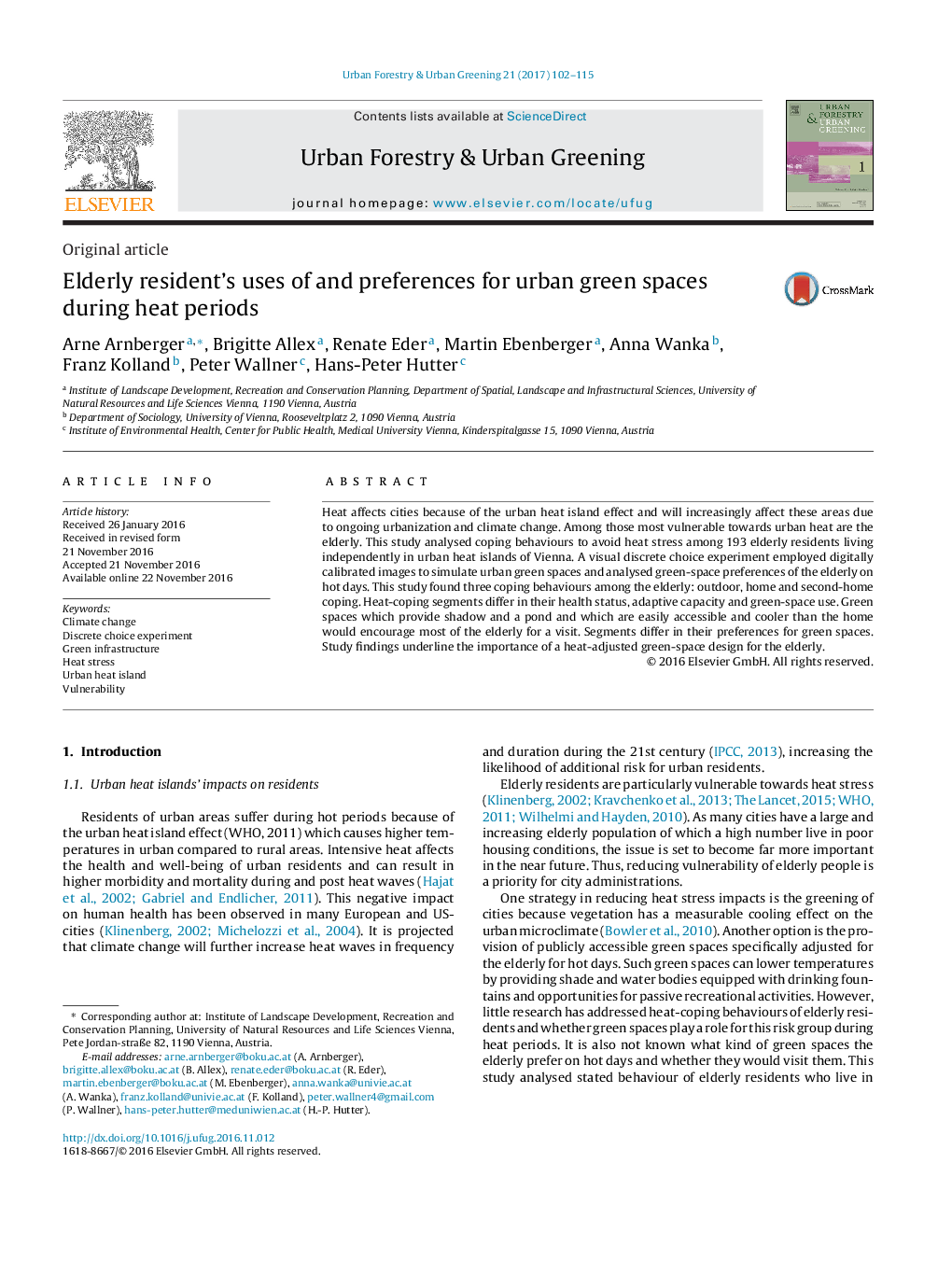| Article ID | Journal | Published Year | Pages | File Type |
|---|---|---|---|---|
| 6461638 | Urban Forestry & Urban Greening | 2017 | 14 Pages |
â¢This study identified three heat-coping behaviours among the elderly: outdoor, indoor and second-home coping.â¢Heat-coping types differ in their health status and residential living conditions.â¢Design, access and visitor numbers influence the attractiveness of green spaces during heat periods.â¢Trees and temperatures in the green space lower than in the apartment increase the intention to visit green spaces.â¢Preferences for green spaces varies among heat coping types.
Heat affects cities because of the urban heat island effect and will increasingly affect these areas due to ongoing urbanization and climate change. Among those most vulnerable towards urban heat are the elderly. This study analysed coping behaviours to avoid heat stress among 193 elderly residents living independently in urban heat islands of Vienna. A visual discrete choice experiment employed digitally calibrated images to simulate urban green spaces and analysed green-space preferences of the elderly on hot days. This study found three coping behaviours among the elderly: outdoor, home and second-home coping. Heat-coping segments differ in their health status, adaptive capacity and green-space use. Green spaces which provide shadow and a pond and which are easily accessible and cooler than the home would encourage most of the elderly for a visit. Segments differ in their preferences for green spaces. Study findings underline the importance of a heat-adjusted green-space design for the elderly.
